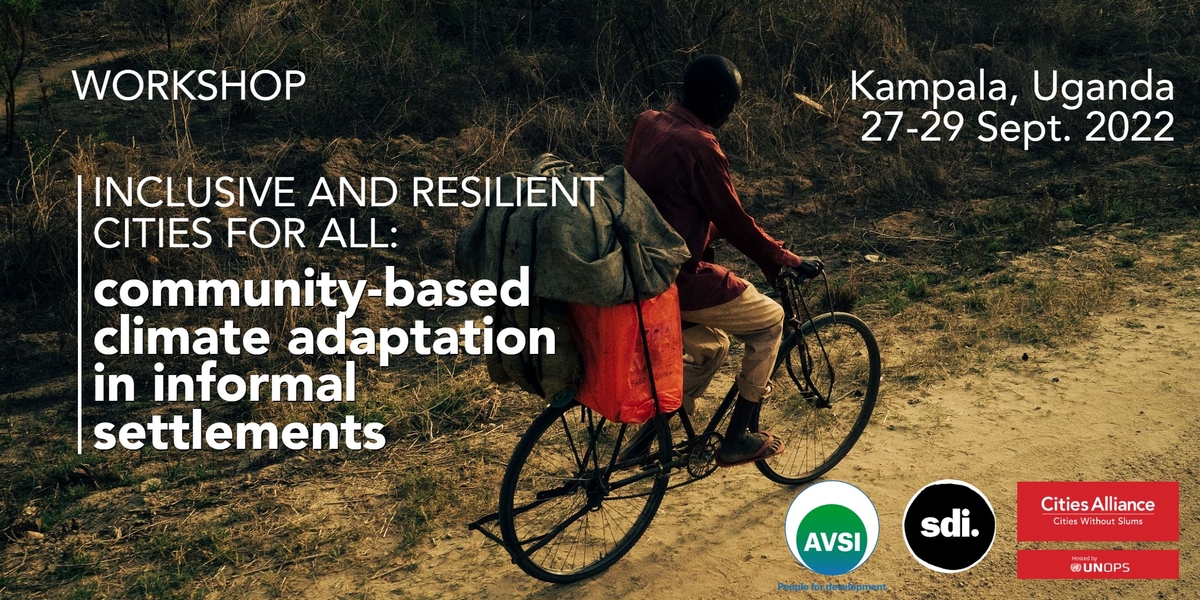- Who We Are
- How We Work
- Portfolio & Results
- Newsroom
- Resources
Workshop: Community-based Climate Adaptation in Informal Settlements

A knowledge sharing workshop in Kampala, co-hosted by Cities Alliance and its members AVSI and SDI.
Inspired by the Cities Alliance’s work on inclusive climate change responses, this workshop will bring together community activists, practitioners, government officials, and experts, to discuss how to effectively prepare for climate change impacts in informal settlements, while improving livelihoods and strengthening local resilience, with a particular focus on women and youth.
The three-day event aims at sharing knowledge around existing initiatives and practices that empower local communities to become agents of change on climate action in their cities and facilitate community-government collaboration.
It will also bring the perspectives of government officials and the private sector, and promote a multistakeholder and intergenerational discussion around these six key lessons, drawn from Cities Alliance's recent global call for climate adaptation projects:
- Prioritize building resilience with the urban poor: Local and national governments urgently need to respond to climate change impacts threatening low-income residents living in informal settlements. They must recognize the rights of residents to participate in developing local climate action plans.
- Tackle barriers to inclusion: Local and national governments must align climate adaptation solutions with local development needs by framing climate initiatives within existing community priorities. This will also help tackle the knowledge gap in policy planning and implementation.
- Build local partnerships for resilience: Local governments should adopt people-centred approaches to build relationships between local government, residents’ associations, community-based organizations (CBOs) and other key stakeholders.
- Co-produce local solutions for adaptation: Low-cost and locally led innovations and solutions can boost local resilience while supporting city-wide planning and action. Their effectiveness can be greatly enhanced when implemented through partnerships with local and municipal governments.
- Prioritize inclusive climate action: Adaptation and resilience projects must recognise local diversity, gendered inequalities and the vulnerabilities that youth, people with disabilities and other minorities face. Local governments and projects must promote women’s empowerment and include disadvantaged minority groups.
- Maximize local impact through better funding and support: Donors should invest in funding mechanisms that target local communities, governments and institutions and support long-term collaborative and context-driven climate action. This will boost the impacts of interventions and help institutionalise good practice.
This workshop will share lessons learned on concrete participatory tools and practices applied by different stakeholders from East Africa and offer a networking opportunity for pro-poor organizations working at the local and regional levels.





